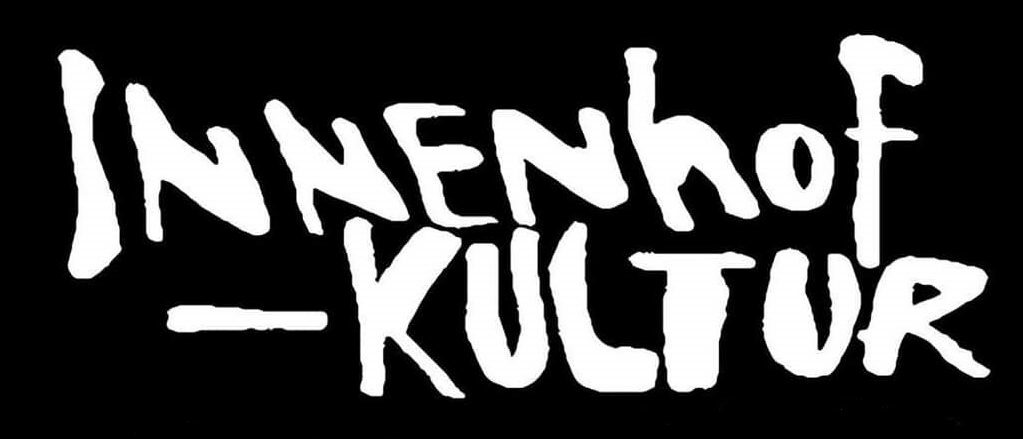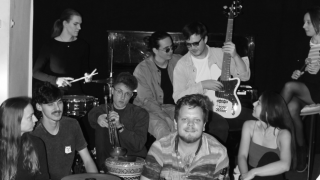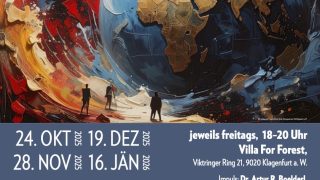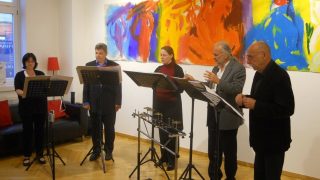Tiktaalik
Oliver Marec (Saxophone) | Luca Zambito (Klavier)
Clemens Rofner (Kontrabass) | Simon Springer (Schlagzeug)
Eintritt: € 12 | StudentInnen und alle unter 18 Jahren € 6

Tiktaalik begibt sich auf eine spielerische Reise durch hochenergetische, zupackende Melodien und Rhythmen und zurückhaltende, beinahe fragil wirkende Passagen, die von langen und weiten Bögen durchzogen sind. Humorvoll, bodenständig und unprätentiös reißt das Quartett mühelos Genre-Grenzen nieder und entwickelt im Laufe des gemeinsamen Schaffensprozesses ein kollektives Verständnis für die spielerischen Stärken und Persönlichkeiten der einzelnen Musiker.
In der ausgefeilten kompositorischen Arbeit wird Platz für gemeinsames Zusammensetzen der ungeraden Rhythmen und komplexen harmonischen Strukturen gelassen, um die Klangsprache der Band optimal auszuleuchten. Diese Kombination verschiedener musikalischer Stilmittel und jeder Menge improvisatorische Freiraum zeichnet tiktaalik aus.
Innerhalb dieser vielschichtigen Identität findet jedes Mitglied der Band – Oliver Marec (Saxophone), Luca Zambito (Klavier), Clemens Rofner (Kontrabass) und Simon Springer (Schlagzeug) – seinen Platz und es entsteht eine Spielweise, ein Dialog, der an die Namensgebung anknüpft. Tiktaalik bedeutet in der Sprache der Inuit „großer Süsswasserfisch“, dieser nimmt in der Geschichte der Evolution der Tiere vom Wasser zum Land eine wesentliche Rolle ein. Vom lautmalerischen Klang des Namens inspiriert gründete der Saxophonist Oliver Marec 2015 ein Quartett, mit dem er traditionelle und moderne Jazz-Elemente verbindet. Gleichzeitig wird am Grundgedanken der Evolution festgehalten, dass auf der Suche nach neuen melodischen und rhythmischen Ideen und Wegen kein Stillstand herrschen kann.
Playful, down-to earth, unpretentious: tiktaalik tears down the boundaries of traditional genres and develops a mutual understanding for the strengths of each musician during their collective creative process. Tiktaalik embarks on a spirited journey outlined by highly energetic and intriguing melodies and rhythms as well as soft-spoken, delicate passages. Their elaborate compositional work leaves room for a common effort in arranging their pieces and combining uneven rhythms with complex harmonious structures in order to highlight the sound language of the quartet. This combination of varied musical stylistics and improvisational freedom defines tiktaalik.
The band is composed of Oliver Marec playing the saxophone, Clemens Rofner on double bass, drummer Simon Springer and pianist Luca Zambito. Every member of tiktaalik finds his place in the multi-layered identity of the band as they create a play that ties a knot with the name of the band. Tiktaalik is the Inuit word for freshwater fish. The Tiktaalik played a big role in evolution, as it represented the transition of the animal from the water on to land. In 2015 the saxophone player Oliver Marec founded tiktaalik with the goal to combine traditional and modern elements of Jazz. Inspired by the onomatopoetic sound of the name, the band also represents the basic idea of the evolution – one cannot come to a standstill while seeking new melodic and rhythmic ideas.









